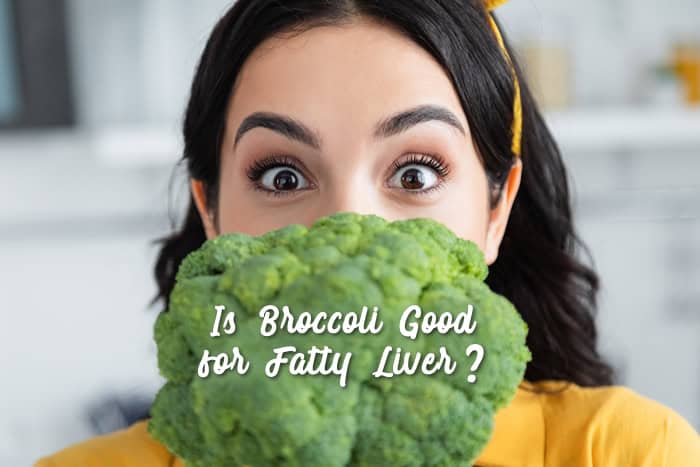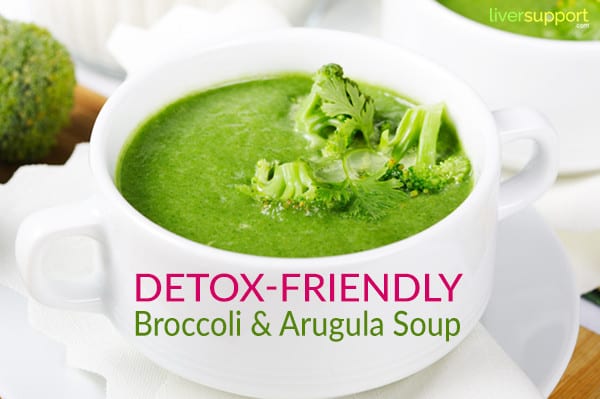
Previous
Vemlidy: FDA Expands Approval to Kids with Hepatitis B

Next
What Is the #1 Food that Causes Liver Disease?
Is Broccoli Good for Fatty Liver?
Research indicates that broccoli is good for your liver! Find out the details, along with 11 more health benefits of this green superfood.
Broccoli is the tenth most popular vegetable sold in the U.S. according to the International Fresh Produce Association. (1) While some people simply like its taste, research indicates this green superfood may also improve liver health by aiding in fatty liver prevention and treatment.
How Broccoli Is Good for Fatty Liver: The Research
Some studies suggest that the sulforaphane in broccoli may help protect against non-alcoholic fatty liver disease (NAFLD) by slowing the buildup of fat in the liver. (2) Although NAFLD has now been renamed to metabolic dysfunction-associated steatotic liver disease (MASLD), the condition is the same. The liver has excess fat, causing inflammation and cell damage in this organ and potentially leading to more advanced liver disease.
Sulforaphane is a phytochemical found in all cruciferous vegetables, of which broccoli is one, along with cabbage, kale, Brussels sprouts, and several others. You can find it in other green veggies as well. Its benefits include: (3)
- Neutralizing toxins
- Reducing inflammation
- Slowing tumor growth
- Protecting against DNA mutations that could lead to cancer
Other research supports broccoli’s role in preventing or delaying fatty liver, though it credits all of this vegetable’s bioactive compounds for producing this effect. It states that consuming broccoli can reduce the accumulation of fat in the liver and inhibit liver injury by increasing the body’s excretion of very low-density lipoprotein (VLDL). (4)
11 More Broccoli Health Benefits
Of course, broccoli isn’t only good for liver health. Its many vitamins and minerals – some of which include vitamins A, C, and K, along with the nutrients calcium, iron, and potassium – provide other health benefits, such as: (5)
- Improved immunity
- Increased collagen production
- Better wound healing
- Aids in iron absorption
- Helps maintain bone strength and health
- Prevents osteoporosis
- Assists with weight control
- Promotes healthy metabolism
- Supports a healthy digestive tract and gut health
- Greater heart health
- Contributes to better vision and eye health
Ways to Incorporate More Broccoli into Your Diet
The good news about broccoli is that it’s super easy to add to your diet. You can eat it as a snack either on its own or by dipping it in hummus or plain Greek yogurt seasoned with your favorite herbs and spices.
Broccoli also makes a good side dish. Steaming it can help preserve its nutrients, as does roasting it. But you can also boil it if you’d like. Broccoli is also a good addition to salads.
Another option is to make a meal starring broccoli as the main ingredient. If you like soups, broccoli and arugula soup is a good way to get more of this veggie into your day.
Broccoli also goes well in quiches, omelets, and a variety of other food dishes.
What If You Don’t Like the Taste of Broccoli?
No matter how good broccoli may be for liver health, and even health overall, if you don’t like the taste of it, you’re not likely to eat it. Fortunately, there are other ways to increase your broccoli intake without creating stress or distress.
One is to add it to your smoothies. Cream it up with spinach, avocado, and other greens for a super-green drink that helps hide broccoli’s taste. You can also add fruit to the smoothie to give it some sweetness and hide the broccoli even more. Apples, bananas, and mango are all good options.
Some supplements also contain broccoli, making it incredibly easy to get more of this green in your diet. For example, Natural Wellness offers a Superfood Greens Complex which includes a vegetable blend of broccoli florets, also containing spinach leaf, beet root juice, and rhubarb juice. Getting your daily veggie intake doesn’t get much easier than that.
(1) International Fresh Produce Association. (n.d.). Top 20 Fruits and Vegetables Sold in the U.S. Retrieved April 26, 2024, from https://www.freshproduce.com/resources/consumer-trends/top-20/
(2) Chen, Y., Myracle, A., Wallig, M., Jeffery, E. (2016, June). Dietary Broccoli Protects Against Fatty Liver Development But Not Against Progression of Liver Cancer in Mice Pretreated with Diethylnitrosamine. Journal of Functional Foods. doi:10.1016/j.jff.2016.03.028
(3) The University of Texas MD Anderson Cancer Center. (2020, April). Sulforaphane Benefits: How Broccoli and Brussels Sprouts May Help Reduce Your Cancer Risk. Retrieved April 26, 2024, from https://www.mdanderson.org/publications/focused-on-health/sulforaphane-benefits--how-leafy-veggies-like-broccoli-and-bruss.h13-1593780.html
(4) Xuang, X., Xu, J., Hu, Y., Huang, K., Luo, Y., He, X. (2022, February). Broccoli Ameliorate NAFLD by Increasing Lipolysis and Promoting Liver Microphages Polarize Toward M-2 Type. Journal of Functional Foods. doi:10.1016/j.jff.2021.104898
(5) Syed, R., Moni, S., Bin Break, M., et al. (2023, July). Broccoli: A Multi-Faceted Vegetable for Health: An In-Depth Review of Its Nutritional Attributes, Antimicrobial Abilities, and Anti-Inflammatory Properties. Antibiotics (Basel). doi:10.3390/antibiotics12071157







